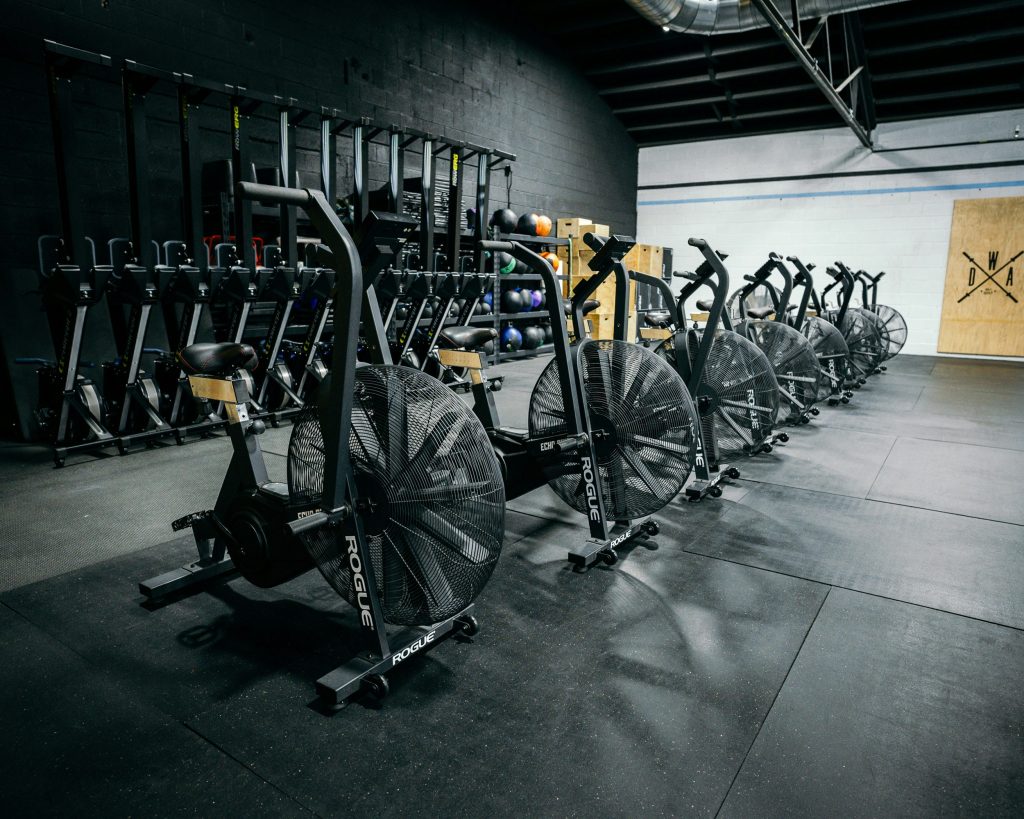Starting a fitness regimen is a pivotal decision with significant immediate and long-term health benefits. Engaging early in physical activities is not just beneficial for your physical health but is also crucial for your overall well-being. This article focuses on the substantial advantages of initiating fitness activities at an early stage. It serves as a comprehensive guide for those new to fitness, addressing common questions and providing essential tips for beginners.
The importance of fitness cannot be overstated, especially for beginners who may be unsure where to start. Questions like “What are the Immediate Fitness Gains?” and “What are effective Beginner Workout Tips?” are common and reflect the need for clear, actionable information. This article aims to provide that, offering a foundation for a healthy and sustainable fitness lifestyle.
“Incorporating just 30 minutes of moderate exercise into your daily routine can increase your lifespan by up to 4 years.”
This article covers various important aspects of beginning a fitness routine, ensuring you have a comprehensive understanding and a practical approach to starting this significant endeavor.
- Understanding Early Fitness Benefits: Discover the immediate and extensive long-term health and psychological benefits.
- Fitness Basics for Beginners: Acquire the fundamentals for a safe, effective, and enjoyable start to your fitness journey.
- Crafting Your First Routine: Learn about creating a balanced, sustainable, and personalized workout regimen.
- Nutrition and Fitness Synergy: Understand the crucial role of diet in supporting and enhancing your fitness efforts.
- Overcoming Initial Challenges: Find out strategies to navigate common obstacles, ensuring a smooth and effective fitness journey.
As you progress through this detailed exploration, remember that deciding to focus on fitness early is a commitment to your health and well-being. This commitment can lead to improved health, mental clarity, and an overall enhanced quality of life.
Understanding Early Fitness Benefits
Initiating a fitness routine is a critical decision that impacts both physical and psychological health. The benefits of starting fitness activities early are multifaceted, offering immediate health improvements, long-term wellness advantages, and significant positive effects on mental health. This section focuses on these benefits, providing factual and direct information to underscore the importance of early engagement in physical activities.
Immediate Health Improvements
Physical activity, even at a basic level, brings about significant health improvements in a short time frame. Key benefits include:
- Enhanced Cardiovascular Efficiency: Regular physical activity strengthens the heart, enabling it to pump blood more efficiently, reducing the risk of heart disease and improving overall cardiovascular health.
- Improved Respiratory Function: Exercise increases lung capacity and enhances oxygen exchange, which is crucial for bodily functions and endurance during physical activities.
- Decrease in Blood Pressure and Bad Cholesterol Levels: Active lifestyles contribute to lower blood pressure and reduced levels of LDL cholesterol, mitigating the risk of cardiovascular diseases.
Long-Term Health Benefits
The benefits of consistent physical activity extend well beyond the immediate effects. Long-term engagement in exercise can drastically reduce the risk of several chronic diseases, enhance musculoskeletal health, and promote longevity. Regular physical activity is a preventive measure against heart disease, diabetes, and various forms of cancer. It also contributes to stronger bones and muscles, providing structural support and reducing the risk of age-related decline.
“Studies have shown that engaging in regular physical activity can reduce the risk of heart disease by up to 35%.”
Moreover, the benefits are not limited to physical health. Regular exercise plays a crucial role in maintaining cognitive function, potentially reducing the risk of cognitive decline and neurodegenerative diseases like Alzheimer’s. This underscores the importance of integrating fitness as a permanent element of lifestyle, rather than a temporary measure.
Psychological Impact of Fitness
The impact of regular physical activity on mental health is profound and multifaceted. Exercise acts as a powerful tool for stress relief, increasing the production of endorphins, known for elevating mood and reducing the perception of pain. Furthermore, it boosts the production of norepinephrine, which helps moderate the brain’s response to stress.
Regular engagement in physical activities can significantly enhance self-esteem and confidence as individuals meet their fitness goals and improve their physique. It also serves as a platform for social interaction, offering opportunities to connect with like-minded individuals, which is beneficial for mental health. The positive effects of fitness infiltrate everyday life, offering a healthier, more focused, and emotionally balanced lifestyle.
The importance of understanding the early benefits of fitness cannot be overstated. From immediate physical improvements to long-term health preservation and psychological well-being, the advantages of starting fitness early are comprehensive and far-reaching. This section aims to highlight these benefits, encouraging individuals to embrace fitness not just as a phase but as a lifelong commitment to health and happiness.
Fitness Basics for Beginners
Starting a fitness regimen requires a solid understanding of several key components that ensure the safety, effectiveness, and enjoyment of the exercise routine. This section provides crucial information on the foundational aspects of fitness for beginners, focusing on selecting suitable exercises, setting realistic goals, and comprehending body mechanics.
Choosing the Right Exercise
For beginners, selecting the right exercises is crucial. The choice should align with individual fitness levels, interests, and specific goals. Beginning with activities of low to moderate intensity, such as walking, swimming, or yoga, helps the body gradually adapt to increased physical demands and decreases the risk of injuries. Consideration of any pre-existing health conditions is vital to ensure that chosen exercises are safe and beneficial. Diversifying exercises keeps the routine engaging and works various muscle groups, which supports balanced development and reduces the risk of repetitive strain injuries.
“Engaging in physical activity can increase the number of calories burned per day by up to 500, depending on the intensity and duration of the exercise.”
Setting Realistic Goals
Effective goal setting is vital for maintaining motivation and tracking progress. Beginners should establish SMART goals – specific, measurable, achievable, realistic, and time-bound. Initial goals might include committing to a 30-minute walk five days a week or completing a beginner’s yoga class. Achieving these initial goals provides a sense of progress and can pave the way for setting more challenging objectives.
| Goal Type | Description | Example |
|---|---|---|
| Short-term | Goals that can be achieved in the near future | Walk 30 minutes, five days a week |
| Mid-term | Goals that are achievable in the next few months | Complete a 5K run |
| Long-term | Goals that are set for the distant future | Participate in a half-marathon |
Adjusting goals regularly based on progress and feedback is essential for sustained motivation and improvement.
Understanding Body Mechanics
Knowledge of body mechanics is fundamental for exercising safely and efficiently. Beginners should familiarize themselves with the correct form and technique for their chosen exercises to minimize the risk of injury. Understanding how different exercises affect various muscle groups and how the body reacts to physical stress guides beginners in making informed decisions about their workout routines. Recognizing the distinction between muscle soreness associated with growth and pain that may indicate an injury is crucial for maintaining a safe and effective exercise regimen.
For beginners, mastering the basics of fitness is crucial for a successful start and sustained progress in their fitness journey. By selecting appropriate exercises, setting realistic goals, and understanding body mechanics, beginners can build a solid foundation that supports their health and fitness objectives.
Crafting Your First Routine
Constructing a comprehensive and personalized workout routine is a critical aspect of starting a fitness regimen. The process of “Crafting Your First Routine” is a detailed one, involving the selection of exercises, understanding the need for a balanced approach, ensuring consistent participation, and keeping track of progress to achieve optimal results in fitness.
Balancing Workout Types
Integrating a variety of workout types, including strength training, cardiovascular exercises, and flexibility workouts, is essential for a well-rounded fitness routine. Strength training enhances muscle mass and bone density, while cardiovascular exercises improve heart health and boost endurance. Flexibility workouts, like yoga or stretching, are crucial for maintaining joint mobility and preventing injuries.
Beginners should focus on moderate-intensity exercises initially, and then gradually intensify the workouts as their bodies adapt. This variety in exercise types helps in maintaining interest and motivation, and it significantly lowers the risk of overtraining and injury.
“Diversifying your workout routine can reduce the risk of overuse injuries by more than 25%, ensuring a safer fitness experience.”
Routine Consistency
A consistent workout schedule is pivotal for realizing fitness goals. It helps in embedding exercise into one’s daily life, fostering a habit that contributes to long-term health benefits. Beginners should establish a feasible and flexible workout schedule that accommodates their lifestyle and allows sufficient time for rest.
Key strategies for maintaining routine consistency include:
- Set a Regular Workout Time: Consistently working out at a set time helps in establishing a routine.
- Plan for Flexibility: Being prepared with alternative workout options ensures that your fitness routine is maintained even when disruptions occur.
- Track Your Attendance: Recording your workout days helps in visualizing and maintaining consistency over time.
Monitoring Progress
Keeping track of your fitness progress is instrumental in maintaining motivation and measuring the effectiveness of your workout routine. Beginners can monitor their progress by using fitness apps, maintaining workout journals, or tracking simple metrics like workout frequency, number of repetitions, or duration of workouts.
Regular evaluations of progress are beneficial for identifying the successful aspects of the workout routine and areas that need adjustment. This approach not only motivates but also facilitates the setting of new, more challenging goals, contributing to ongoing improvement and success in fitness endeavors.
In summary, the construction of your first routine is foundational in your approach to fitness. A well-planned routine that incorporates diverse workout types, maintains consistency, and tracks progress is key to achieving and sustaining fitness goals.
Nutrition and Fitness Synergy
The interplay between nutrition and fitness is crucial for optimizing physical performance and achieving health goals. The concept of “Nutrition and Fitness Synergy” emphasizes the importance of aligning one’s diet with their fitness routine to maximize the benefits of physical activity. This section explores the significance of essential nutrients, practical diet planning for beginners, and the critical role of hydration in enhancing performance.
Essential Nutrients for Fitness
Proper nutrition is foundational for supporting fitness activities. Essential nutrients, including proteins, carbohydrates, and fats, play significant roles in providing energy, facilitating workout recovery, and maintaining overall health. Proteins are key for muscle repair and growth and should be a staple in the diet of those engaging in regular physical activity.
Micronutrients, such as vitamins and minerals, are also integral to fitness. They support various bodily functions critical to physical performance and overall well-being. For example, calcium and vitamin D contribute to bone health, while iron is vital for oxygen transport to muscles. Ensuring a balanced intake of these nutrients is essential for optimal physical performance and recovery.
Diet Planning for Beginners
Effective diet planning is a cornerstone of fitness, especially for beginners. It involves more than calorie monitoring; it requires a balanced consumption of essential nutrients to support physical activity and recovery. Beginners should aim to consume a diverse range of foods, ensuring they receive a comprehensive spectrum of nutrients. This includes a mix of fruits, vegetables, lean proteins, whole grains, and healthy fats.
Portion control and the timing of meals are crucial components of diet planning. Consuming appropriate food quantities and aligning meal times with workout schedules can significantly enhance energy levels during exercise and aid in recovery post-workout.
| Nutrient | Benefits | Food Sources |
|---|---|---|
| Proteins | Muscle repair and growth | Chicken, fish, tofu, beans |
| Carbohydrates | Energy for exercise and daily activities | Whole grains, fruits, vegetables |
| Fats | Energy storage and nutrient absorption | Nuts, avocados, olive oil |
Hydration and Performance
Hydration is a key factor that directly influences performance during workouts and the recovery process. Adequate fluid intake is essential for regulating body temperature, lubricating joints, and facilitating nutrient transport, all of which are crucial for maintaining health and optimizing energy levels.
“Proper hydration can increase performance during exercise by up to 20%, highlighting its critical role in fitness routines.”
Dehydration can lead to a significant decrease in strength and endurance, emphasizing the importance of regular water consumption throughout the day and particularly around workout sessions. For exercises of high intensity or long duration, incorporating sports drinks can be beneficial for replenishing electrolytes lost through sweat.
In conclusion, the synergy between nutrition and fitness is integral for achieving fitness goals and maintaining overall health. A balanced diet, coupled with proper hydration, forms the backbone of a successful fitness regimen. Understanding and applying the principles of diet planning and hydration can significantly enhance the effectiveness of one’s fitness routine, paving the way for a healthier and more active lifestyle.
Overcoming Initial Challenges
Initiating a fitness regimen involves addressing and managing various challenges that can arise during the early stages. This section aims to provide practical strategies for “Overcoming Initial Challenges,” focusing on effective ways to deal with post-workout soreness, maintain motivation, and achieve a sustainable balance between fitness activities and other life commitments.
Dealing with Soreness
Experiencing muscle soreness after workouts, known as delayed onset muscle soreness (DOMS), is common, especially for beginners. Understanding that this soreness is part of the muscle adaptation and growth process is important. To mitigate the intensity of soreness, it’s recommended to incorporate gradual warm-up routines before workouts and cool-down activities afterward. Staying hydrated, consuming a balanced diet, and getting sufficient rest are essential for muscle recovery. Additionally, light activities such as walking or gentle stretching can facilitate the recovery process and reduce the duration of soreness.
“Active recovery activities such as walking or gentle stretching can reduce DOMS duration by up to 50%.”
Staying Motivated
Maintaining motivation amidst challenges requires a structured approach. Setting achievable and realistic goals helps maintain focus and provides a sense of progress. Recognizing and celebrating small achievements can significantly boost morale and motivation. Diversifying workout routines and incorporating enjoyable activities can prevent boredom and foster continued interest in fitness. Additionally, connecting with a supportive community or having a workout partner can provide the necessary encouragement to persistently pursue fitness goals. Remembering the initial reasons for starting the fitness regimen and focusing on the desired outcomes can also serve as strong motivational factors.
Balancing Fitness with Lifestyle
Incorporating a fitness routine into a busy lifestyle necessitates strategic planning and time management. Achieving a harmonious balance between fitness and other daily commitments involves identifying suitable times for workouts and treating these workout sessions as important personal appointments.
- Identify Convenient Time Slots: Schedule workouts during times that seamlessly integrate into your existing routine.
- Prioritize Your Workouts: Consider your workout sessions as essential commitments and plan other activities around them.
- Be Flexible and Forgiving: If a workout session is missed, adjust your plans to accommodate the next session without undue stress or guilt.
Overcoming the initial challenges encountered in the early stages of a fitness routine is a crucial part of the journey toward a healthier lifestyle. Effective management of post-workout soreness, consistent motivation, and finding a balance between fitness and other life responsibilities are key to sustaining a successful fitness routine.
Conclusion: Start Fitness Early: Immediate Gains
This comprehensive guide has provided a detailed examination of the multifaceted approach to fitness and wellness. The journey through the various aspects of fitness—from initial considerations to the integration of fitness into daily life—highlights the importance of a well-rounded approach to health. This final section encapsulates the critical insights from each subtopic and underscores the importance of an integrated approach to fitness, combining effective workouts, balanced nutrition, and consistent progress tracking.
Summarizing Key Insights
This guide has covered essential aspects of a successful fitness journey:
- Immediate and Long-term Benefits of Early Fitness Engagement: Addressed the significant health improvements, both immediate and enduring, that come from starting fitness activities early.
- Critical Aspects of Fitness for Beginners: Focused on the importance of selecting appropriate exercises, setting achievable goals, and understanding the mechanics of the body to prevent injury and improve effectiveness.
- Balanced and Consistent Workout Routine: Highlighted the need for incorporating various types of workouts, maintaining a regular exercise schedule, and tracking progress for sustained improvement and motivation.
- Role of Nutrition and Hydration in Fitness: Emphasized the critical impact of a balanced diet and adequate hydration on enhancing workout performance and overall health.
- Strategies for Overcoming Common Challenges: Offered practical advice on managing post-workout soreness, sustaining motivation through goal-setting and community support, and integrating fitness activities into a busy lifestyle.
Emphasizing the Integrated Approach
The journey to a healthier life involves more than isolated fitness activities. It requires a comprehensive approach that integrates physical activity, proper nutrition, and mental resilience. The combination of these elements is crucial not only for achieving specific fitness goals but also for fostering a lifestyle that prioritizes overall health and well-being. As you move forward, it’s important to view each step as part of a broader commitment to your health. The insights and strategies provided in this guide are designed to equip you with the knowledge to face challenges confidently and to make informed decisions that contribute to your health and wellness routine.
Citations:
- How to Start Exercising and Stick to It, Help Guide
- How Long It Takes To See Results From Working Out, Health
- Balance Your Exercise with a Well-Rounded Fitness Plan, Palm Health


